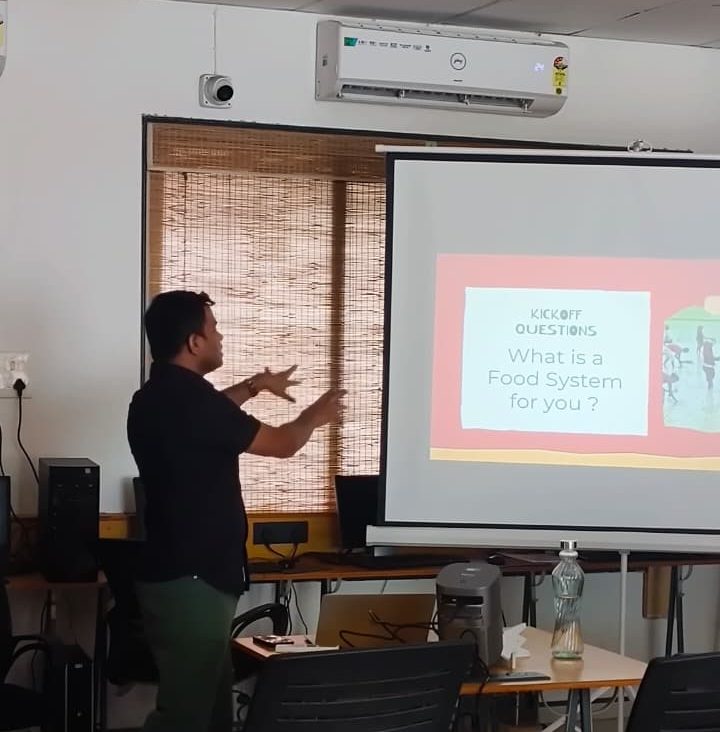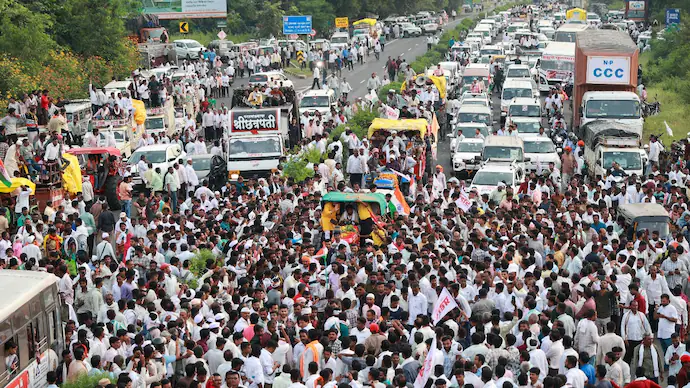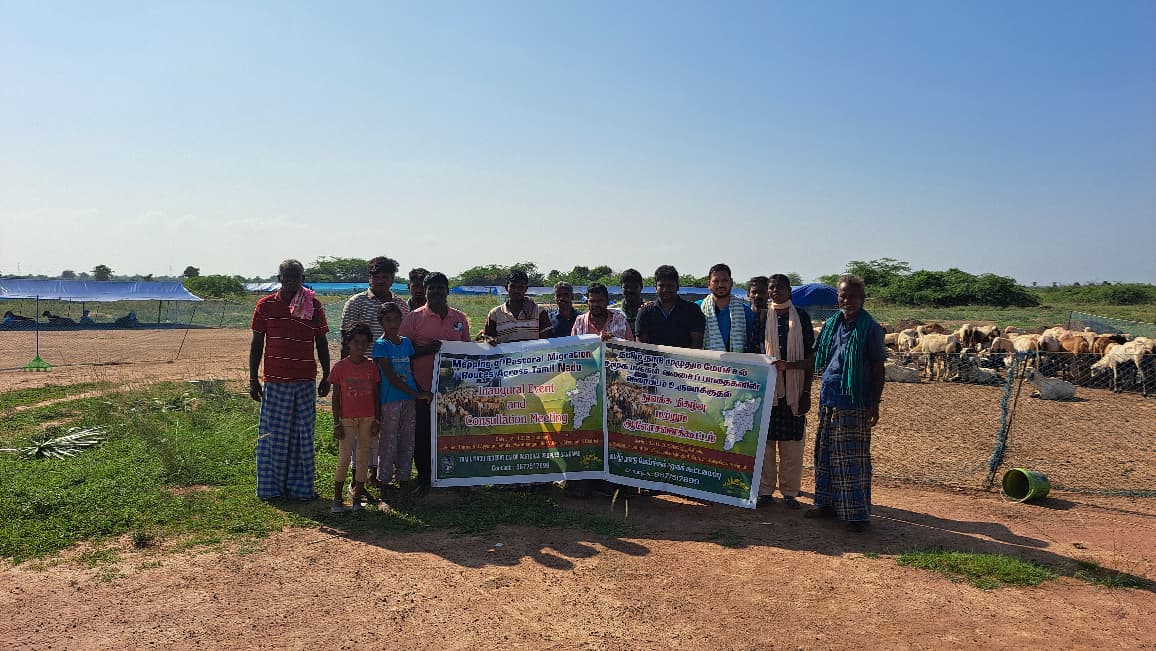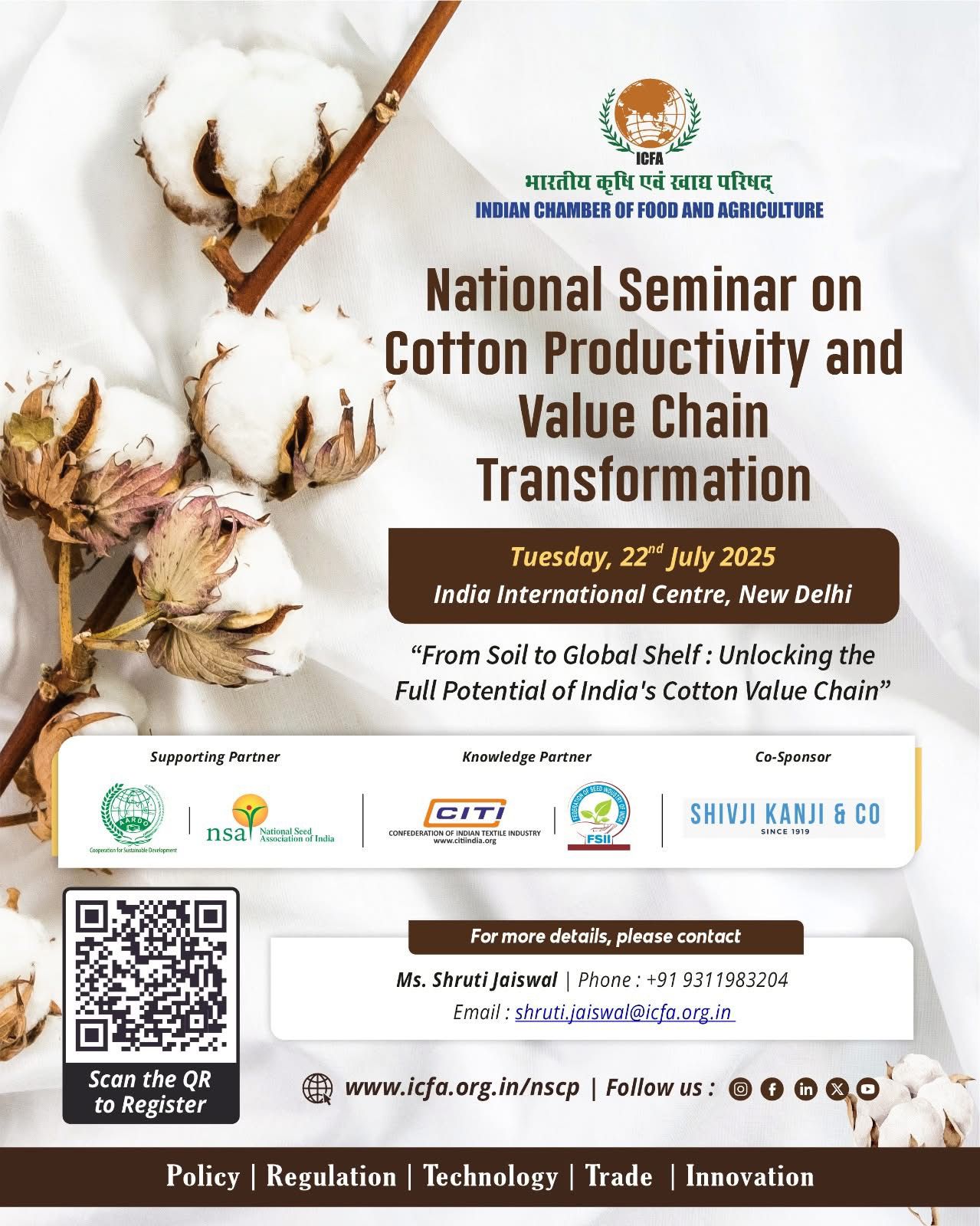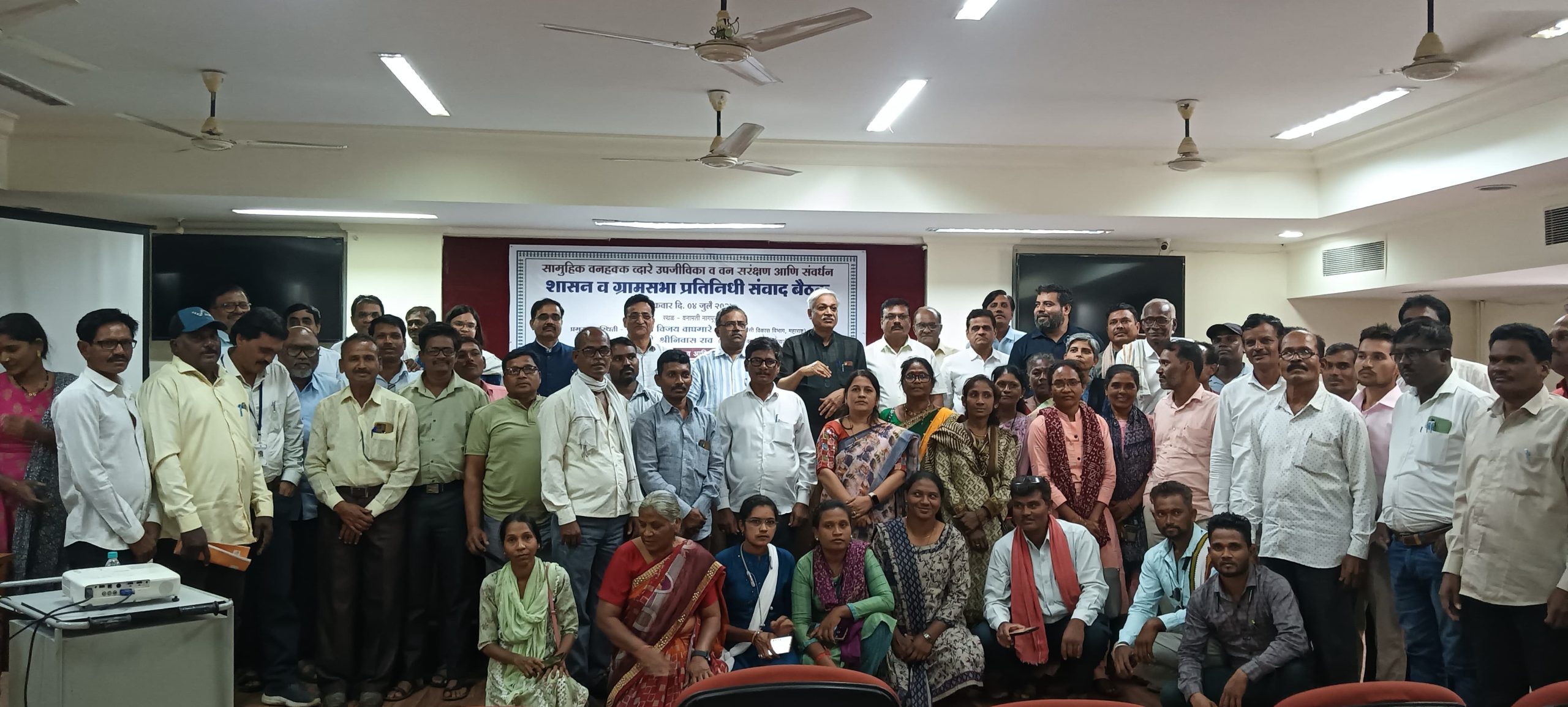Nagpur, August 17
At a time when India’s food systems face mounting pressures of climate change, farmer distress, and shifting consumer diets, a session in Nagpur brought together practitioners and farmers to bridge the gap between lived experience and everyday choices.
The discussion, titled “Food For You”, was led by Akash Naoghare, a food systems researcher and practitioner who left behind a career in industrial engineering after being shaken by the epidemic of farmer suicides in Vidarbha. Over the past 12 years, Akash has worked on seed conservation, agroecology, and food systems in different capacity. Speaking to a diverse audience, he broke down the complexities of food systems into simple, relatable stories.
“Food is not only about calories or taste, it is about the invisible threads that connect farmers, soil, water, and our health,” he said. He urged participants to view their plates as a site of power: each purchase, whether of millets, seasonal vegetables, or imported processed food, has ripple effects on farmers’ livelihoods and ecological sustainability.
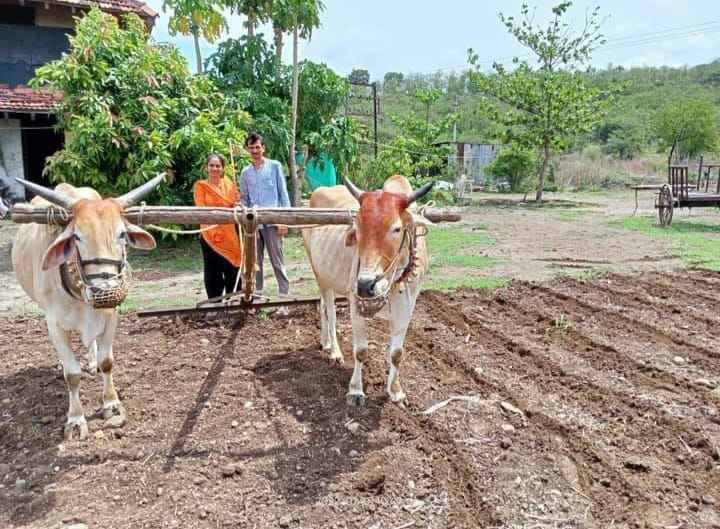
Complementing his perspective was the testimony of Mandar Deshpande an organic farmer from Wardha, whose life journey itself symbolises a quiet resistance to India’s development orthodoxy. A trained mechanical engineer, he described how he rejected the corporate track and instead chose to return to the land. With the support of his family, he settled in Wardha, purchased farmland, and built a mud house as a symbol of sustainable living.
His narrative underscored both the promise and difficulty of such choices. “It is not easy to farm organically or to build solidarity among farmers walking this path. But it is necessary if we are to imagine a different future,” he reflected.
Together, the two speakers highlighted the urgent intersections of sustainability, culture, and livelihood. India, they argued, stands at a crossroads: between a high-input, market-driven food economy and one rooted in resilience, diversity, and community solidarity.
The session ended not with abstract debates, but with an experience of what such choices might taste like participants shared craft coffee and cookies made from organic wheat, a gentle reminder that sustainable food systems can also be nourishing and delightful.

